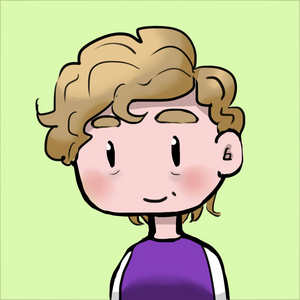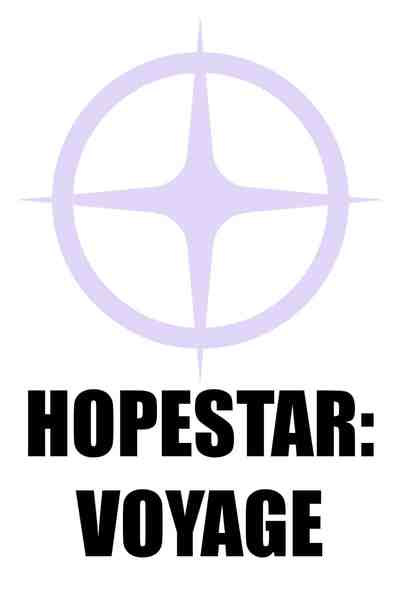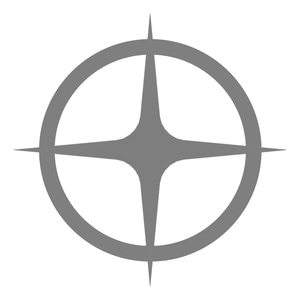Despite only the familiar hum of the ship in subspace transit around them, Nikolai couldn’t sleep. He dozed off for an hour but got pulled out of it by his lungs refusing to breathe. He managed to reach for the inhaler without waking Rob up and was now stuck in this limbo of not feeling great enough to fall asleep while being too exhausted to be productive.
He was lying on his side so he could watch his husband sleeping next to him. His tired brain seemed to be in two different timelines at the same time. He could see Rob now, stubbornly without a blanket on, one arm pressing a pillow covered in black curls to his cheek and another on his round stomach occasionally twitching as if he was fixing some delicate machinery in his dream. He could also see Rob thirteen years ago, his hair thin and dark grey and no longer curly, his face crossed with lines, and the skin on his knuckles sticking up in folds as if it was soft plastic. Both Robs were real. And he loved them.
Renovation was the closest human science ever came to feeling like magic, Nikolai thought. They could take a body and turn the time back for it, replace old cells with new ones, “patch” the DNA and convince it that it is 30 years old instead of 70. All in just a few days. (There was also an option of “shedding extra weight” but neither of them felt any interest in it. Rob has been fat his whole life, and Nick gained quite some weight since they started living on a spaceship, but it didn’t bother either of them so why change it?) Rob was no longer a grumpy old man with failing knees; instead, he was grumpy and young and ready to destroy his knees again by spending too much time crouched in tight spaces around the Hopestar. His arms and hands were also free of a dozen old scars.
Nick’s renovation didn’t go as well. No, he looked young, and his back didn’t hurt anymore, and his hair did turn dark blond for a few years before stubbornly reverting to grey again. But on the final steps of the procedure he got rushed into the emergency reanimation room where doctors spent the next week fighting for his life. The main issue came from lacking any medical records from his childhood. He was born and grew up on a space station, which was evident by his bone tissue structure. Clearly there was more to that because his DNA was prone to slowly losing important data. Nothing dramatic happened during the first 70 years of his life, but the renovation pulled cells through such a huge shock, it was a miracle he didn’t grow a second head or something. (Yes, he knew that was not how DNA mutation worked, but it was still funny to imagine.)
Once Nikolai was out of the ERR, he had to learn to breathe again and got an implant to balance the chemicals his body didn’t generate correctly anymore. One thing was certain: he could never go through a renovation ever again. This seemed to hit Rob much harder than Nick. Rob could get another two renovations without much of a risk, and maybe even a fourth one if there were no obvious side-effects showing. Reaching 200 years was not that rare on Earth, Mars, and rich colonies. But once the main danger was over, and they had a chance to sit down and talk about what happened and what lies in the future, Rob was adamant: there was no point in further renovations if he would go through them alone.
With Nick stuck in hospital, what was supposed to be a week in dock turned into a month because Hopestar couldn’t fly without either the Captain or the Chief Engineer being in charge (and Rob refused to leave him even for a short hop and back). Since then, they’ve put a lot of effort into ensuring this would not happen again.
Engineers grew into a much more bonded group. Irene was now more than qualified to become the Chief. Without her, the ship could still run safely thanks to the communication being encouraged between every member of the department. Stewards grew to be their own independent force, equally important as other crew if not more so. And pilots shed a lot of elitism and started cooperating (though there was still a long way to go).
If Rob wanted to suddenly retire tomorrow, he could leave without creating any issues. Nick was not as successful in training a replacement.
Honestly, he didn’t feel that essential to the functioning of the Hopestar. They could easily train some engineers to maintain his code. The stewards can take over the route planning and maybe hire someone new to focus on all the accounting.
Maybe Paolo could finally take responsibility for anything outside of the cockpit.
Maybe Andrew could start caring about real action more than theory.
Nick has been living in these “maybes” for the past 13 years.
He rolled to his back and tried to take a deeper breath. It felt easier now and there was hope he could get some sleep after all. And then he heard a soft chime sound, which was a message notification from his working station. It was technically his rest period and no one would expect him to answer right away at this hour. His brain, however, could not think of anything but this message now. After a few more deep breaths, Nick sat up with a huff, got dressed, stumbled over a pair of Rob’s underwear (Wow, they left a mess yesterday. Why did sex have to be so gross? It’s been six decades, he was yet to see an appeal, other than how it made his husband feel. He didn’t hate it, he just could live without it, honestly), and finally walked out of the bedroom, through the kitchen and into the office.
The lights were dimmed and Nikolai didn’t bother turning them up as he slid down into his chair. A part of the screen was dedicated to unending bug reports, both automatic and filed manually by engineers and pilots and an occasional unlucky steward who would get buried in passengers' complaints about their cabin interfaces not showing media correctly. Nick knew half of these would get resolved by the time his actual shift starts because, once again, they had great engineers who could manage his code without problem. There was also a spreadsheet still open from last night and he closed it (making sure to save twice, just in case). Navigation notifications, food supply evaluation, automatic water and air quality monitoring… There, the local feed messages.
He had many unread messages, of course, but there was no way he would ever go through them (he couldn’t even bother to write a script to mark everything older than a week as read). And the latest letters were the most important ones anyways. The one that got him out of bed was from Petra. Here was another workaholic on the ship: Petra’s schedule was constantly floating between the shifts. Technically, she worked the same as Nick and Rob did… but here was a letter from her written in the middle of the night. Last month, she was constantly working at third shift hours, and half a year before that, she stayed up with the second shift.
“CREW TRAINING: MANAGING PASSENGERS’ SAFETY IN HOSTILE SITUATIONS. SCHEDULE [TO SIGN]”
Huh, so Petra did manage to get some useful information out of Andrew, and together with Zulu and other high-ranking stewards she wrote training exercises. Most were just for the stewards but the schedule also included optional seminars for engineers and pilots. Maybe he would think otherwise once his brain was at 100% again (who was he kidding, his brain was never more than at 86%), but right now this looked really good.
No one in their previous meeting seemed to even consider the subspace pirate threat but her. Rob and Paolo clearly didn’t believe it was possible at all. And maybe it wasn’t. But Antio was such a distant world with a very small security force that piracy was indeed a real thing in normal space. There was a risk of getting boarded on the way to and out of the dock. Far enough from the planet, but not yet at the subspace jump point. And even if you were at the right spot, it was dangerous to dive in while another ship was close enough; you could pull them in with you and crash, they could influence your position, only half of the ship would dive, and many other weird and explosive outcomes.
If Antio was to become a regular stop for them, the crew needed to be prepared for possible abductions. Yes, they were a passenger ship and slavery wasn't in the news regularly in the past centuries but what if it makes a comeback? They could also be mistaken for a cargo ship on scans because Hopestar was built using Gemi basics. Gemi ships could fit more people in a smaller craft so big vessels were mostly used for cargo. Rob and Nick took the outer hull of several Gemi haulers, slapped them together, and then completely reworked everything inside but the engines.
So, the chance of being boarded by hostiles was now higher than zero. And if stewards could keep the passengers safe while the whole situation was being resolved, it was worth the training. And maybe it shouldn’t be forced on the crew during the rest periods either. Nikolai started writing a reply: yes, this is amazing; no we should schedule these exercises during the peak hours for the shifts; perhaps, we could lower the general steward presence on the decks and explain it to the passengers as an investment into their safety; yes, definitely do the same for engineers and pilots; maybe run the training for the pilots twice, just in case.
He didn’t think about it much further and sent the reply immediately. A few moments later he got the short reply on the private board from Petra: “Why are you awake?? ahahah))”. Nick smiled and promised he won’t be for much longer.
He drank a glass of water in the kitchen and finally slipped back into the bedroom. Rob was sitting on the bed and rubbing his face as if he just woke up. He heard Nick and looked at him, still fuzzy. “Oh, I noticed you were gone, and your inhaler was out in the open, and I got worried…”
Nick smiled gently and crawled back onto the bed to kiss him on the temple. “I am much better. Ready to sleep again. Don’t worry.”
Rob stared at him with a frown for several moments, one eye barely open, then grumbled. “Okay. Wake me up next time this happens, though. And you will tell Dr Batt about it in the morning.”
He should do that, yes. But it also felt like he was annoying her with these same reports again and again. Yes, I woke up because I couldn’t breathe. Yes, the inhaler helped. Yes, I felt better ten minutes later. Yes, I checked- oh, he didn’t actually check his implant stats.
“I will, I will. I’ll just see if my levels are alright and tuck in. Go back to sleep.”
After a couple more promises that nothing was out of the ordinary, Rob finally fell back onto his pillow. Nick looked at his interface, found all values green, swiped through a mandatory questionnaire, and finally lay down and pressed himself to his husband’s side. He could feel Rob move his head to give him a small kiss on the forehead, the beard tickling the top of Nick’s nose. A few minutes later, he was finally asleep and didn’t wake up until morning.











Comments (0)
See all